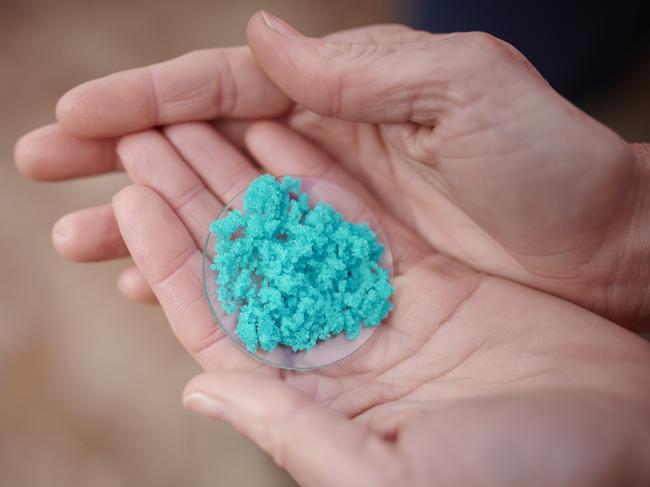New mineral mining boom could create 25,000 jobs in NSW
Global demand for nickel, cobalt and other precious commodities is set to surge, and it could create thousands of jobs in NSW.
Environment
Don't miss out on the headlines from Environment. Followed categories will be added to My News.
More than 25,000 jobs could be created in NSW in a new mineral mining boom, with global demand for nickel and cobalt and other precious commodities projected to skyrocket over coming years.
Research commissioned by The Daily Telegraph shows that NSW could produce 7,292 direct jobs and 18,230 indirect jobs in critical minerals, plus an additional 21,163 jobs in electric mining equipment.
The analysis, conducted by research group Beyond Zero Emissions, also shows that Queensland could create 10,985 jobs in critical minerals and 16,710 in electric mining equipment, South Australia could create 23,348 jobs in critical minerals and 6,107 in electric mining equipment, and WA could create 24,279 and 9,447 respectively.

Almost 40 per cent of Australia’s commodity exports are currently fossil fuels — namely thermal coal, metallurgical coal, crude oil and LNG. However Australia’s top five export markets — China, Japan, South Korea, the US and the EU — have all set net zero targets which are effectively reversing demand.
As a result, demand for critical minerals used to produce things like batteries and solar panels is projected to boom, with Australia poised to export up to $168 billion worth by 2050.
This would make Australia the leading global supplier of clean commodities.
“Current climate targets of Australia’s key trading partners will wipe $128 billion a year off Australia’s exports unless we invest in alternatives,” BZE. head of policy and research Tom Quinn said.
“Over the next two decades Australia will lose a third of total commodity export revenue and the jobs that go with them, unless significant policy shifts are made to unlock investments in new export industries.
“This includes policies that will help reindustrialise the nation and create jobs in the regions by incentivising more value-added onshore processing of mined resources before export.”
In NSW, Sunrise Energy Metals is developing the Sunrise nickel, cobalt and scandium mine and mineral processing facility north of Condobolin in the state’s Central West.
Once constructed, the Sunrise Project will become one of the world’s largest suppliers of nickel and cobalt sulphate, materials that are essential for the lithium ion batteries used in electric vehicles.
Over its three-year construction, the Sunrise workforce is forecast to peak at 1700 full-time equivalent jobs. The project’s steady-state operational workforce will generate over 370 ongoing jobs.
The project will secure renewable energy from the NSW electricity grid to supply 100 per cent of its external power requirements. The commitment to secure renewable energy is estimated to reduce carbon dioxide emissions by 4.6 million tonnes, equivalent to taking more than one million cars off the road for a year.
It will also lower Sunrise’s estimated carbon emissions, giving it one of the lowest carbon footprints for battery-grade nickel production in the world.
“Sunrise will be one of the world’s largest suppliers of battery grade nickel and cobalt sulphate and we have also demonstrated the capability to make precursor cathode active material on-site,” CEO Sam Riggall said.
“Australia has an enormous opportunity in the critical minerals sector. We have all of the minerals in the ground that are essential components of EV batteries and existing logistics network that connect many of these sites.”
Mr Quinn said Australia possessed commercial quantities of 16 of the minerals used in solar panels and 10 of the elements required to build lithium-ion batteries.
“Global production of key minerals, such as graphite, lithium and cobalt, could increase by over 500 per cent by 2050, to meet the growing demand for clean energy technologies,” he said.
“Critical minerals present in NSW gives us a chance to move up the supply chain to value add to the export of raw materials. This would add significant value to the region’s mining and industrial communities.
“Replacing diesel-powered machines with electric or hydrogen-powered alternatives in Australia’s minerals mining sector could create an additional 21,163 electric mining equipment jobs in NSW. This would increase the efficiency and sustainability of Australia’s high-value mining sector and create good quality mining manufacturing jobs.”
Originally published as New mineral mining boom could create 25,000 jobs in NSW



